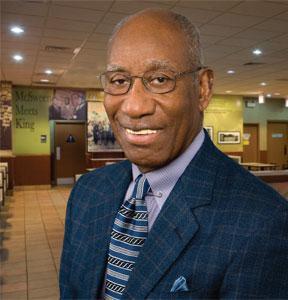The wealth gap in the U.S. between Black households and white households remains a stark divide, with the Federal Reserve Board of Governors finding in 2019 that the median white household’s wealth was greater than $188,000, while the median for Black families was $24,000.
This data is indicative of a systemic struggle for Black Americans, and in order to help bring about change, financial advisors need to build connections with the younger Black adult generations first, writes Kristi Rodriguez, senior vice president of thought leadership for Nationwide Financial, in a recent blog.
Black Americans have been growing their savings and income in recent years, with more Black adults earning degrees, owning businesses, and joining the corporate workforce, but the wealth gap remains very real. It is extremely problematic for older generations within Black families who do not want to become a financial burden to their younger loved ones, but the broad lack of wealth, exacerbated by a lack of wealth planning and inheritance, makes this extremely difficult; 26% of white families receive inheritances, while only 8% of Black families do.
“Financial professionals have a role to play in helping Black Americans close the wealth gap with the rest of the population and foster stronger financial legacies among younger Black generations. However, one major issue financial professionals must address to attract and win over Black clients is a lack of generalized trust,” writes Rodriguez.
A survey from the Nationwide Retirement Institute Health Care found that the best opportunities to bridge the gap and help Black families with their financial planning needs lies within the Black Millennial generation. This generation in particular has felt the impacts of COVID-19 the hardest, feels the most vulnerable to medical debts, and is the most financially stressed. It’s also the largest generational group already working with financial professions — 40% of Black Millennials reported working with a financial advisor already, compared to 27% of Black Gen Xers, and 19% of Black Baby Boomers.
“By managing debt more effectively, younger Black generations can more easily boost how much they’re able to save for retirement. In addition, everyone benefits when they’re able to enter retirement with low or no debt,” writes Rodriguez. “With many Black millennials struggling with medical debt, on top of other borrowing such as student loans, managing debt is one area where financial professionals can focus to help younger Black clients get on firmer financial footing.”
Wealth transfer is a critical component of retirement planning. Nationwide offers a variety of actively managed ETFs for advisors that cater to a range of investment exposures and strategies for those seeking retirement income options for their clients as part of their bigger retirement planning picture.
















